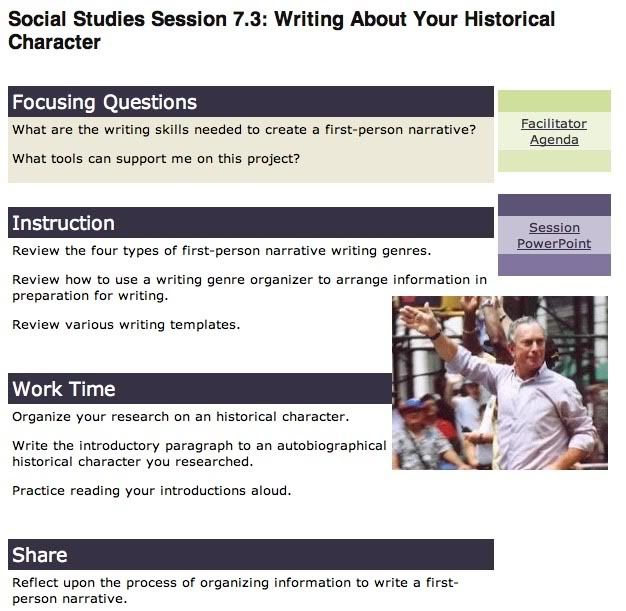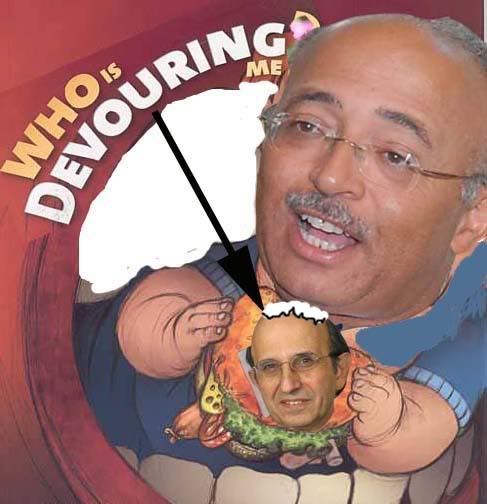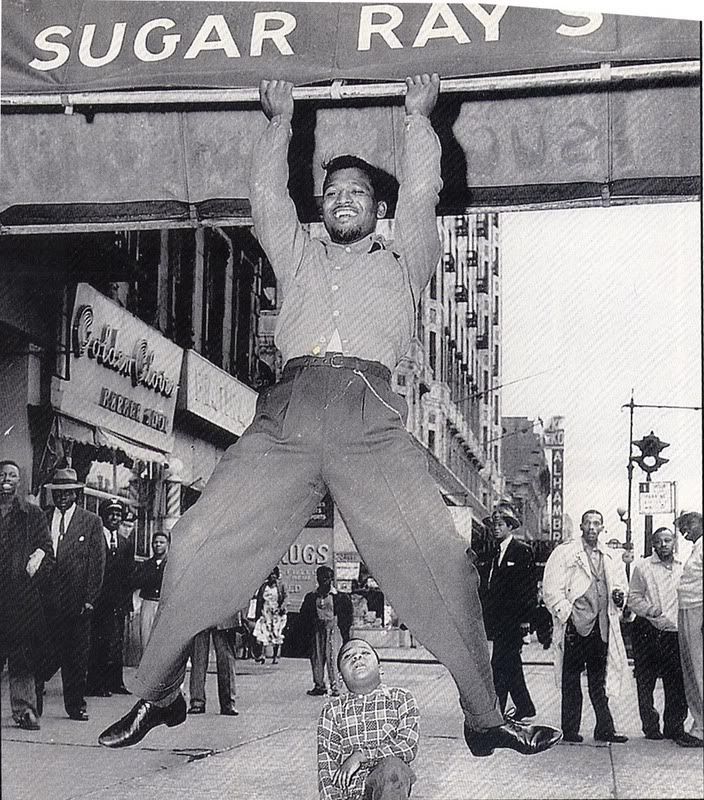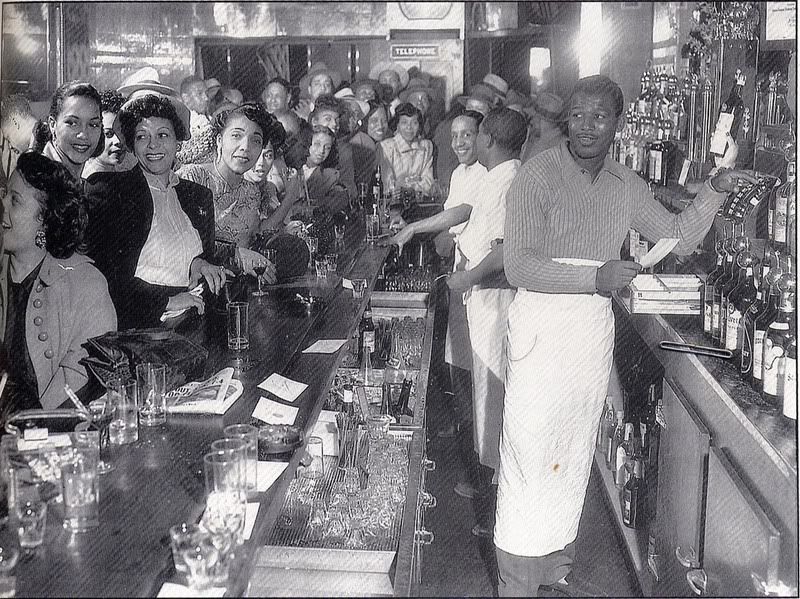What are the odds that the US Dept of Ed would ever think of this?
Brazilian Government Invests in Culture of Hip-Hop
By LARRY ROHTER
SÃO PAULO, Brazil — In a classroom at a community center near a slum here, a street-smart teacher offers a dozen young students tips on how to improve their graffiti techniques. One floor below, in a small soundproof studio, another instructor is teaching a youthful group of would-be rappers how to operate digital recording and video equipment.
This is one of Brazil’s Culture Points, fruit of an official government program that is helping to spread hip-hop culture across a vast nation of 185 million people. With small grants of $60,000 or so to scores of community groups on the outskirts of Brazil’s cities, the Ministry of Culture hopes to channel what it sees as the latent creativity of the country’s poor into new forms of expression.
The program, conceived in 2003, is an initiative of Brazil’s minister of culture, Gilberto Gil, who will be speaking on digital culture and related topics on Wednesday at the South by Southwest Music and Media Conference in Austin, Tex. Though today one of the country’s most revered pop stars, Mr. Gil, 64, was often ostracized at the start of his own career and so feels a certain affinity with the hip-hop culture emerging here.
“These phenomena cannot be regarded negatively, because they encompass huge contingents of the population for whom they are the only connection to the larger world,” he said in a February interview. “A government that can’t perceive this won’t have the capacity to formulate policies that are sufficiently inclusive to keep young people from being diverted to criminality or consigned to social isolation.”
As a result of the Culture Points and similar programs, Mr. Gil said, “you’ve now got young people who are becoming designers, who are making it into media and being used more and more by television and samba schools and revitalizing degraded neighborhoods.” He added, “It’s a different vision of the role of government, a new role.”
As the ministry sees it, hip-hop culture consists of four elements: M.C.’s (rappers), D.J.’s, break dancers and graffiti artists. At the Projeto Casulo, a community center here on a narrow, winding street at the foot of a favela, or squatter slum, all four art forms are being taught to dozens of young residents.
“This program has really democratized culture,” Guiné Silva, a 32-year-old rapper who is the director of the center, said during a tour of its simple concrete building. “We’ve become a multimedia laboratory. Getting that seed money and that studio equipment has enabled us to become a kind of hip-hop factory.”
Though links to music run strong and deep in Brazilian culture, the notion of using taxpayers’ money to encourage rap and graffiti art is not universally accepted. But because Mr. Gil’s musical judgment is widely respected, the level of skepticism and resistance is lower than might be expected.
“Gil still has to fight against other parts of the government in favor of things that everyone else there thinks are alienating junk, but he’s willing to do that, whether it’s on behalf of rap or funk or brega,” another style of music considered vulgar and lower class, said Hermano Vianna, a writer and anthropologist who works in digital culture programs. “He looks at that sort of thing not with prejudice, but rather as a business opportunity.”
On the other hand, some important exponents of hip-hop culture in Brazil, like the rapper Manu Brown and the writer Ferréz, remain skeptical and have chosen to keep their distance from the government program. Others are participating but complain of the bureaucracy involved.
“The idea is great because it has brought about a level of recognition we didn’t have before,” said the rapper Aliado G., president of an entity called Hip Hop Nation Brazil. “But people get frustrated when a project of theirs is approved, and they can’t get the money because they don’t know how to do all the paperwork.”
Brazilian rap, at least as it has developed in poor neighborhoods here in the country’s largest city, tends to be highly politicized and scornful of lyrics that boast about wealth or sexual conquests. In contrast, the funk movement in Brazil, also imported from the United States but centered in Rio de Janeiro, is unabashedly about celebrating sex, bling and violence.
“When U.S. rap groups come here and try to be ostentatious or do the gangster thing, they get booed off the stage,” Mr. Silva said. “We feel a kinship with Chuck D and Public Enemy” — known for their political commentary — “but we don’t have any respect for people like Snoop Dogg and Puff Daddy.”
Since established commercial radio stations and publishing houses have shown minimal interest in the music and poetry that new hip-hop artists are producing, or want to impose contract terms that are too stringent, rappers have developed their own channels to distribute their work. These range from selling their discs and books themselves on the streets and at shows to having the works played on a network of low-power but linked community radio stations.
“There is an entire industry being built in the informal sector,” Mr. Vianna said. “If you were to apply all the laws in place today, no producer can release a record from a favela. So you have to create a new model, and Gil is willing to do that.”
At the Projeto Casulo, the Culture Points program has produced a pair of documentaries about housing problems, complete with a rap accompaniment, that were broadcast on commercial television. The center has also generated a radionovela, a fanzine and a community newspaper and plans next to set up an online radio station to broadcast the rap songs that its musicians and those at similar community centers here have composed and recorded.
In addition, a Culture Ministry grant enabled Hip Hop Nation Brazil to publish a book called “Hip Hop in Pencil,” a collection of rap lyrics. After a first edition of 2,000 copies quickly sold out in 2005 and was nominated for a literary prize, a conventional publishing house was interested enough to negotiate a deal to publish subsequent editions.
“We had never before seen our story told in a book, and at first the publishing houses didn’t take us seriously,” said Toni C, one of the editors and authors of the collection. “Books had always been used as a weapon against us, and people didn’t know that such a thing as hip-hop literature existed. Now they do.”
Brazilian law also offers tax breaks to companies that contribute to cultural endeavors like films, ballet and art exhibitions. Rap music has now been granted similar standing, and as a result, some of the country’s largest corporations have begun underwriting hip-hop records and shows.
At a recent event in Campinas, a city of one million an hour’s drive from here, the sponsors included a power company, a bank, a construction business and an industrial conglomerate. As a troupe of break dancers strutted their most flashy moves, D.J.’s and M.C.’s railed against social, economic and racial inequality with lyrics like “Reality is always hard/for those who have dark skin/if you don’t watch out/you’ll end up in the paddy wagon.”
“It took a while for companies to wake up to the potential this offers,” said Augusto Rodrigues, an executive of the power company and the director of the cultural center where the show was held. “But there’s a hunger for cultural programs like this, in which for the first time in 20 years, the ideology of the periphery can express itself.”
 New Visions is one of those support organizations that have been designated to oversee public schools. Here's a piece about this new system and part of a statement from new visions (courtesy iof Leonie Haimson):Under the proposed reorganization, the Department of Education is asking principals to choose a support organization – either an external Partnership Support Organization, (PSO), an internal DoE-led Learning Support Organization (LSO), or if their school becomes an empowerment school, they can draw on that network for support.
New Visions is one of those support organizations that have been designated to oversee public schools. Here's a piece about this new system and part of a statement from new visions (courtesy iof Leonie Haimson):Under the proposed reorganization, the Department of Education is asking principals to choose a support organization – either an external Partnership Support Organization, (PSO), an internal DoE-led Learning Support Organization (LSO), or if their school becomes an empowerment school, they can draw on that network for support.
























